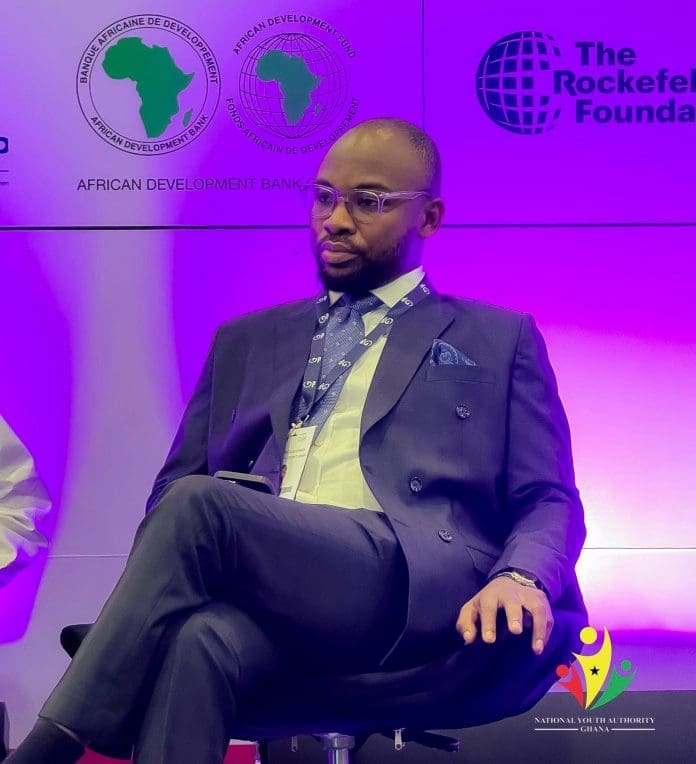Osman Abdullai Ayariga Esq., CEO of Ghana’s National Youth Authority (NYA), has called for urgent reforms to empower African youth as leaders of a new continental push for reparative justice and democratic renewal.
Delivering remarks at the 13th High-Level Dialogue on Democracy, Human Rights, and Governance, Mr. Osman Abdullai Ayariga Esq., represented Ghana’s Minister of Youth Development and Empowerment, Hon. George Opare Addo, and addressed participants under the theme: “Youth-Led Conversations on Reparations, Justice, and State Building in Africa.”
Osman Ayariga highlighted the importance of confronting Africa’s past—slavery, colonialism, and systemic corruption—not to dwell in sorrow but to “forge new paths forward” rooted in justice and equity. He asserted that reparation must move beyond symbolism to practical frameworks that restore dignity and opportunity to affected communities.
“This past is not distant; its echoes persist in our structures, policies, and economic realities,” he said. “Reparations are not merely symbolic—they are a moral imperative.”
The NYA chief further laid out a roadmap for youth participation in transitional justice processes, including digital advocacy, policy formation, and civic engagement tools. He noted that Africa’s youth, as digital natives and cultural change-makers, are uniquely positioned to build cross-border coalitions and push for structural transformation.
“Reparative justice must be woven into the very fabric of democracy and governance. Youth must be at the table not just to talk, but to design, legislate, and lead,” he emphasized.
The dialogue, which brought together African and diaspora youth, featured keynote sessions, panel discussions, and interactive workshops aimed at co-creating policies that address historical wrongs and rebuild state institutions on the foundations of accountability and fairness.
Looking ahead, Osman Ayariga outlined four strategic goals for the youth consultations:
Develop a youth-centred reparative justice framework;
Expand youth participation in shaping transitional justice policies;
Build governance accountability tied to reparation outcomes;
Strengthen Africa–Diaspora youth networks for transformative change.
His speech received praise for its clarity of vision and commitment to long-term, youth-led transformation.
As the High-Level Dialogue continues, Osman Ayariga’s message stands out as a call to action—not just for governments, but for young Africans to seize the mantle of leadership and shape a future marked by justice, equity, and Pan-African solidarity.
Source: newsghana.com.gh











